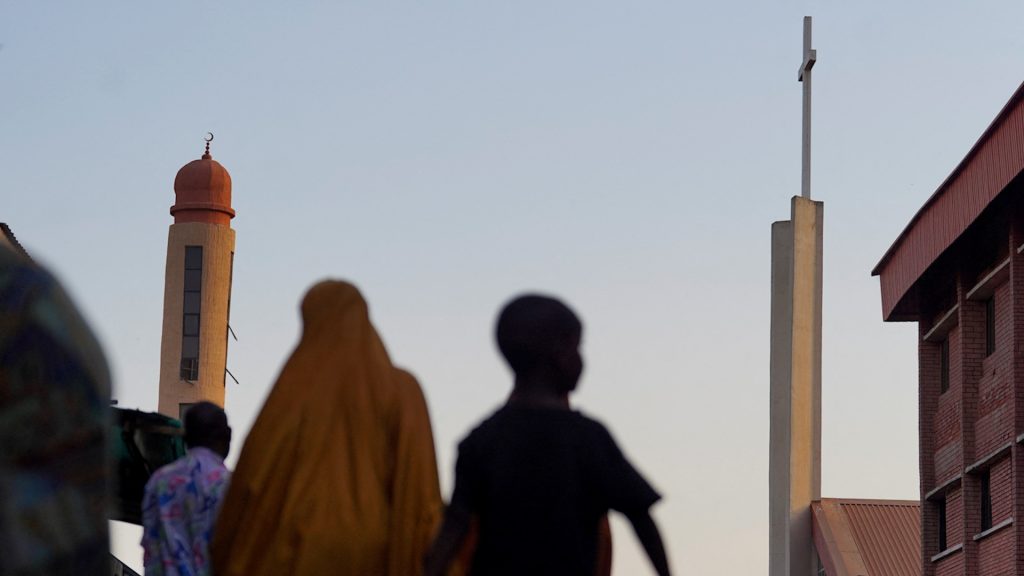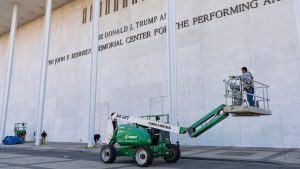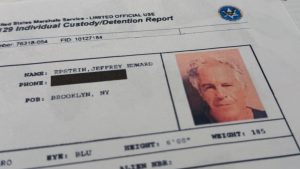Will Trump really use ‘military action’ in Nigeria?

President Donald Trump said on Sunday that if the Nigerian government doesn’t stop what he called the “widescale slaughter of Christians,” the United States military is prepared to step in “guns a-blazing.”
Speaking to reporters this week, Trump warned that the U.S. could deploy troops or carry out airstrikes to stop the killing of large numbers of Christians in the West African country. But with a limited American military presence on the continent — roughly 6,500 troops total, most based thousands of miles away in Djibouti — it’s unclear what kind of intervention Washington would actually mount.
The White House has somewhat tempered its tone since the president’s initial announcement. Press secretary Karoline Leavitt said Tuesday, “If the Nigerian government continues to allow the killing of Christians, the United States will immediately stop all aid and assistance to Nigeria and may take action to wipe out the Islamic terrorists who are committing these horrible atrocities, especially against innocent women and children.”
Leavitt’s comments came just one day after the administration added Nigeria back to the U.S. “Countries of Particular Concern” list for violations of religious freedoms — a designation it shares with China, Myanmar, North Korea, Russia and Pakistan.
Understanding the conflict in Nigeria
Nigeria is Africa’s most populous nation, with a population exceeding 232 million. Roughly half are Christian, and the other half Muslim. Most Christians live in the southern and central regions, while the north is predominantly Muslim. Violence has been most severe in the northeast, where extremist groups and ethnic clashes have persisted for years.
In that region, attacks by Islamist insurgents such as Boko Haram and the Islamic State West Africa Province have targeted both Christians and Muslims. President Trump is correct when he says thousands of Christians have been killed in recent years, but data show Muslims have also suffered heavy losses. Crisis-monitoring group ACLED reported that out of nearly 2,000 attacks on civilians in Nigeria this year, only about 50 specifically targeted Christians for their religion.
Experts point to scarcity of land and water as key drivers of the conflict, with Muslim herders and Christian farmers clashing over dwindling resources. Nigeria’s government argues that many of the killings are linked more to local disputes than religion.
Nigeria’s leaders are pushing back
President Bola Tinubu and his advisers called Trump’s statements a “mischaracterization” of events on the ground. Tinubu’s government acknowledges the violence, but says it’s driven by resource competition, communal tensions and terrorism — not a campaign of Christian persecution.
Unbiased. Straight Facts.TM
Out of nearly 2,000 attacks on civilians in Nigeria this year, only about 50 specifically targeted Christians for their religion.
In remarks to reporters in Washington, Nigerian presidential adviser Daniel Bwala said outdated reports were being misused.
“The report or notion that there is a Christian persecution or genocide in Nigeria is false. We are willing, any time, any day. I personally, I have a feeling that in the next couple of days, they are going to have a sit-down together and then we will find a common front in this fight against insecurity.”
Nigeria’s government said it would welcome U.S. help in fighting Islamist insurgents, but only if its territorial integrity is respected.
International and legal hurdles
Any U.S. military intervention in Nigeria over alleged religious persecution would likely require international approval.
Former United Nations genocide prosecutor Charles Adeogun-Phillips told Reuters, “It would often be the case that the matter would be referred to the Security Council of the United Nations, and resolutions will be passed if it gets to that stage, based on the fact that such atrocities may constitute the threat to global peace and security.”
Adeogun-Phillips noted that proving genocide requires demonstrating state involvement or complicity, something that would be “unheard of” without evidence of government participation or tacit approval.
He added that if the United States suspects Nigeria of violating its obligations under the 1948 Genocide Convention, it could bring a case before the International Court of Justice, though that would be a diplomatic path forward.
What US military action could look like
If the White House does pursue military action, options would likely be limited by logistics and geography. Most of the U.S. presence in Africa is on the continent’s eastern edge, in Djibouti, about 2,300 miles from Nigeria. Washington recently withdrew roughly 1,000 troops from Niger, to Nigeria’s north, and closed a drone base there that once monitored Boko Haram activity.
Possible actions could include:
- Airstrikes and drone surveillance: Launching intelligence flights and targeted strikes against extremist camps or weapons depots.
- Naval operations: Stationing ships in the Gulf of Guinea to enable Tomahawk cruise missile strikes on land targets, though such deployment would take time.
- Special operations missions: Sending small teams to assist Nigerian forces in counterterrorism or hostage-rescue operations.
Of course, air or naval strikes would come with significant risks, including civilian casualties, political backlash and the potential to inflame extremist recruitment.
Local reactions and broader implications
John Joseph Hayab, the northern Nigerian chairman of the country’s Christian Association, said he supports U.S. efforts to help stop religious violence. He opposes any attempt, however, to influence Nigerian leadership.
“What some of us will not support is anybody deciding who should be our leader. It’s clearly a Nigerian thing. But if they are reminding us that what is accepted in our constitution, what is acceptable in other standards, we should do it,” he said.
Analysts also warn that militant groups in Nigeria operate across porous borders, complicating any American military campaign. Even limited strikes, they say, could have wide regional repercussions. For now, the White House insists that it is monitoring the situation closely. Nigerian officials are calling for dialogue and caution against what local newspapers have labeled “an invasion threat.”
The post Will Trump really use ‘military action’ in Nigeria? appeared first on Straight Arrow News.





